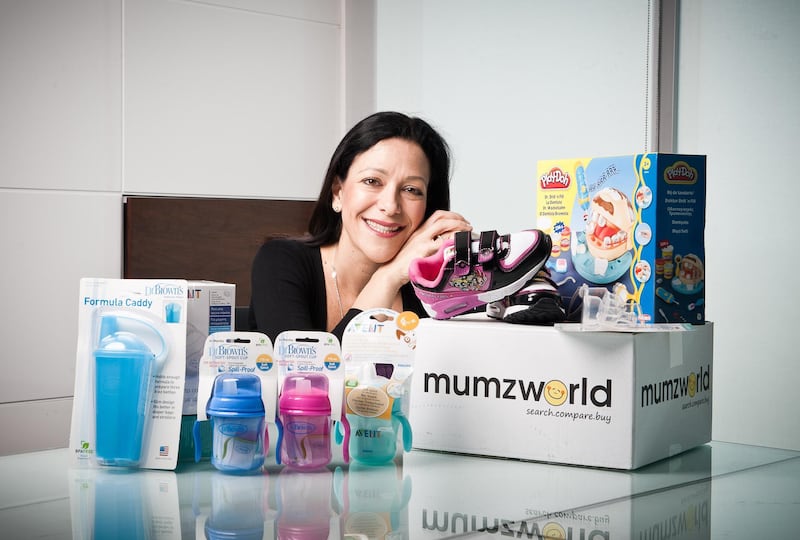The author's dedication in the opening pages of Startup Arabia is "to anyone who dreamed of changing the world and decided to do something about it".
As such, Amir Hegazi aims to inspire the next generation of technology entrepreneurs in the Middle East with the stories of and advice from the Arab world's current crop of chief executives, founders and disruptors who are changing the economic landscape.
These 23 entrepreneurs have demonstrated their innovative approaches to solving problems, building businesses and providing services across a number of sectors from transport to fashion and retail, to logistics, music and networking.
They come from across the region, including Lebanon, Egypt, Kuwait but predominantly the UAE, which Hegazi views as the new land of opportunity. He himself has experience as an entrepreneur with an online streaming platform and later worked at e-commerce company Souq.com.
Hegazi's Startup Arabia follows in the traditions of the vivid and groundbreaking book Startup Rising: The Entrepreneurial Revolution Remaking the Middle East,
written by the American investor Christopher Schroeder, which also explores the “quiet revolution” of entrepreneurial spirit that has been going on these last few years.
Hegazi and Schroeder challenge the typical narrative as told in the United States and elsewhere, of the Middle East as a place of conflict and stagnation. While Schroeder’s book is written as narrative non-fiction and tells a kind of history of the start-up scene in the region, Hegazi has pitched his book almost as a reference resource, giving each of his subjects a full question and answer format in which to convey their experiences, wisdom and points of view.
“This book is meant to shed light on a few of those insightful and inspiring stories being created by remarkable tech entrepreneurs in the Middle East who refused to accept the status quo, managed to transcend cultural beliefs and limitations, and are now rewriting the region’s destiny,” Hegazi writes in his introduction.
The Q&A aspect makes the book easy to navigate, if you know which of the 23 you are keen to read about most, but also quite frustrating because not all are household names, so to speak, and the interviews would have benefited from some more of Hegazi's frame of reference – leading the reader to and through each case study, with a linked narrative. Instead readers are left to connect the dots between each entrepreneur by themselves.
There are many patterns to be found, however. Pretty much a common feature of their stories is that their businesses emerged intact having passed through the crucible of fierce competition.
“There’s nothing like competition to get you running really, really fast,” says Mudassir Sheikha, the Pakistani co-founder of ride hailing platform Careem, which has taken on Uber.
_________________________
Read more:
Mumzworld founder eyes faster delivery and growth
Liwwa targets $240 billion SME finance gap in Middle East
Middle East's e-commerce majors focus on grocery for growth
_________________________
Samih Toukan, who says he Arabised the computer game "Football Manager" when he was just 16 years old, right from the beginning fought off competition from a competitor backed by Saudi billionaire Prince Alwaleed Bin Talal to the tune of $22 million (Dh80.7m). His online portal Maktoob had only $2m to play with, in contrast, but it was the one that was eventually bought by Yahoo! in 2009 for $164m.
Toukan is the daddy of the sector in the Middle East. His early efforts with Maktoob spawned Souq and also online payments company Payfort. The latter’s co-founder Omar Soudodi also features in Startup Arabia.
Last year, Amazon agreed to buy Souq.com for a figure reportedly in the region of $650m, representing the largest exit for a Middle East and North Africa start-up and creating real belief in what is happening in the region. Many of the entrepreneurs also have experience of working outside of the Middle East – often in the United States – and also, in different ways, felt the pull of wanting to be closer to home. There is a sense of a circle being completed with many of these characters.
As Mumzworld founder Mona Ataya says: "I was driven by the constant urge to do something relevant for the region I loved and was proud of." She comes from a family of high-achieving entrepreneurs. Her brother Rabea Ataya, started Bayt.com, the jobs website, which was the reason Mona came back to the UAE. This is fundamentally the really exciting aspect of this collection of the experiences of these talented individuals.
They are building a whole new generation of corporate institutions that will have an influence well beyond profits, helping to develop the social fabric in the countries in which they operate.
Many of them were successful elsewhere and did not necessarily need to come to the Middle East for any other reason than they wanted their businesses to be here, to mean something more than just becoming another Silicon Valley winner.
They also, as the author intends, really do serve as inspiring examples for generations to come, who will see that they too can accomplish such things here at home.
In many ways those featured in this book are the pioneers that have made it easier for those to follow by building up the entrepreneurial ecosystem from scratch, setting the bar high and showing that money can be made from a host of concepts and ideas.
It is a liberation of sorts for the economies of the region that have traditionally been quite risk averse, making business challenging in terms of upward mobility and wealth creation.












